April 22nd, 2025
6minute read
Anyone who owns more than one firearm probably owns a few Lyman tools.
The company, which employs 120 people at three locations, supplies products for all types of firearms uses.
They offered me the opportunity to tour the Middletown facility, and I jumped at the chance.
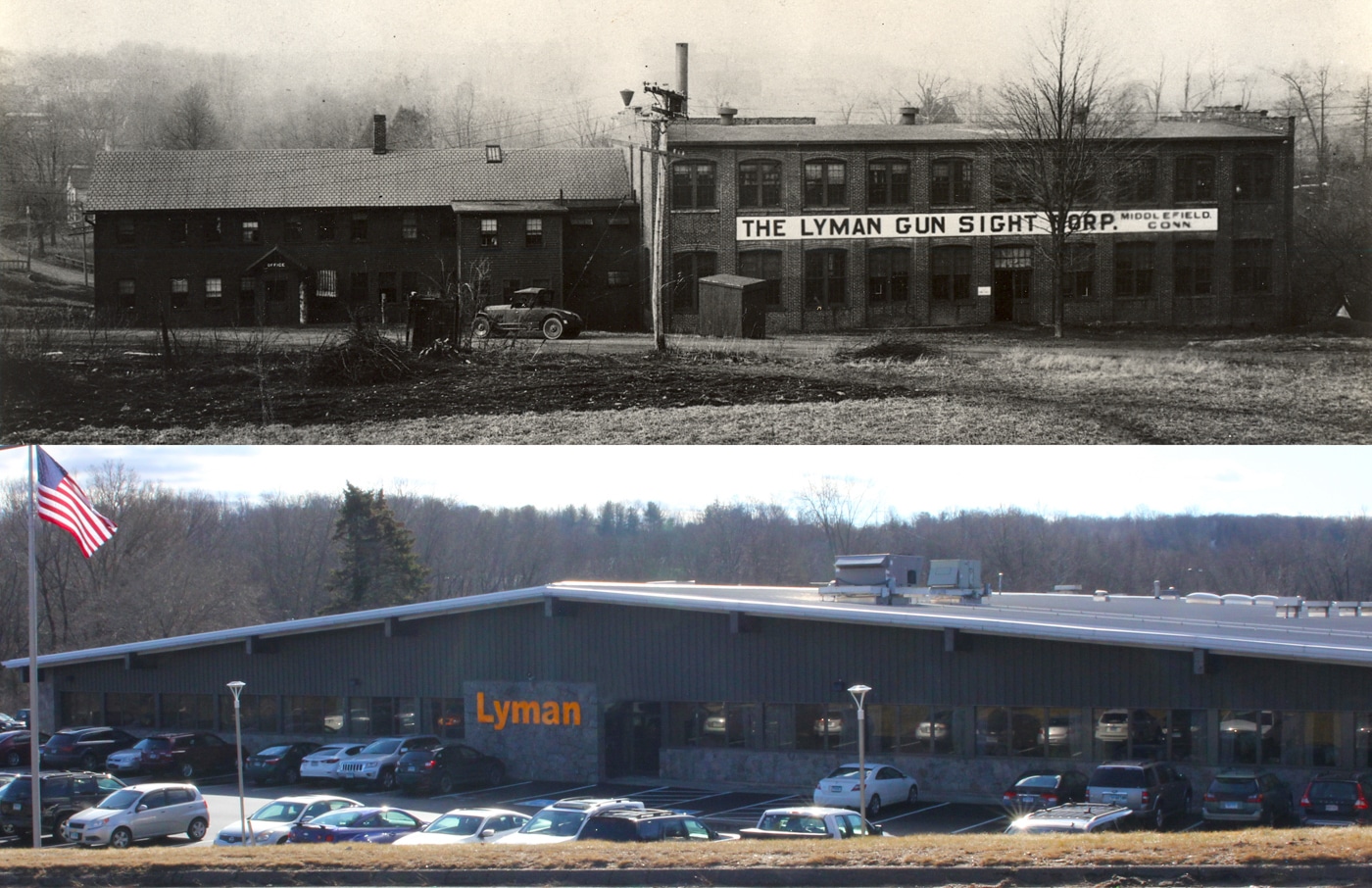
Shown here is the Lyman Factory as it looked in the early 20th Century (top) and the modern location today (bottom). Image: Lyman Products Corp.
Its first acquisition came a few years later, when it bought Ideal Reloading Products.
Lyman produces just about every tool a reloader will need as well as punches and other gunsmithing tools.
The company also manufactures and sells Tacstar shotgun accessories, Trius Traps and Butchs firearms cleaning products.
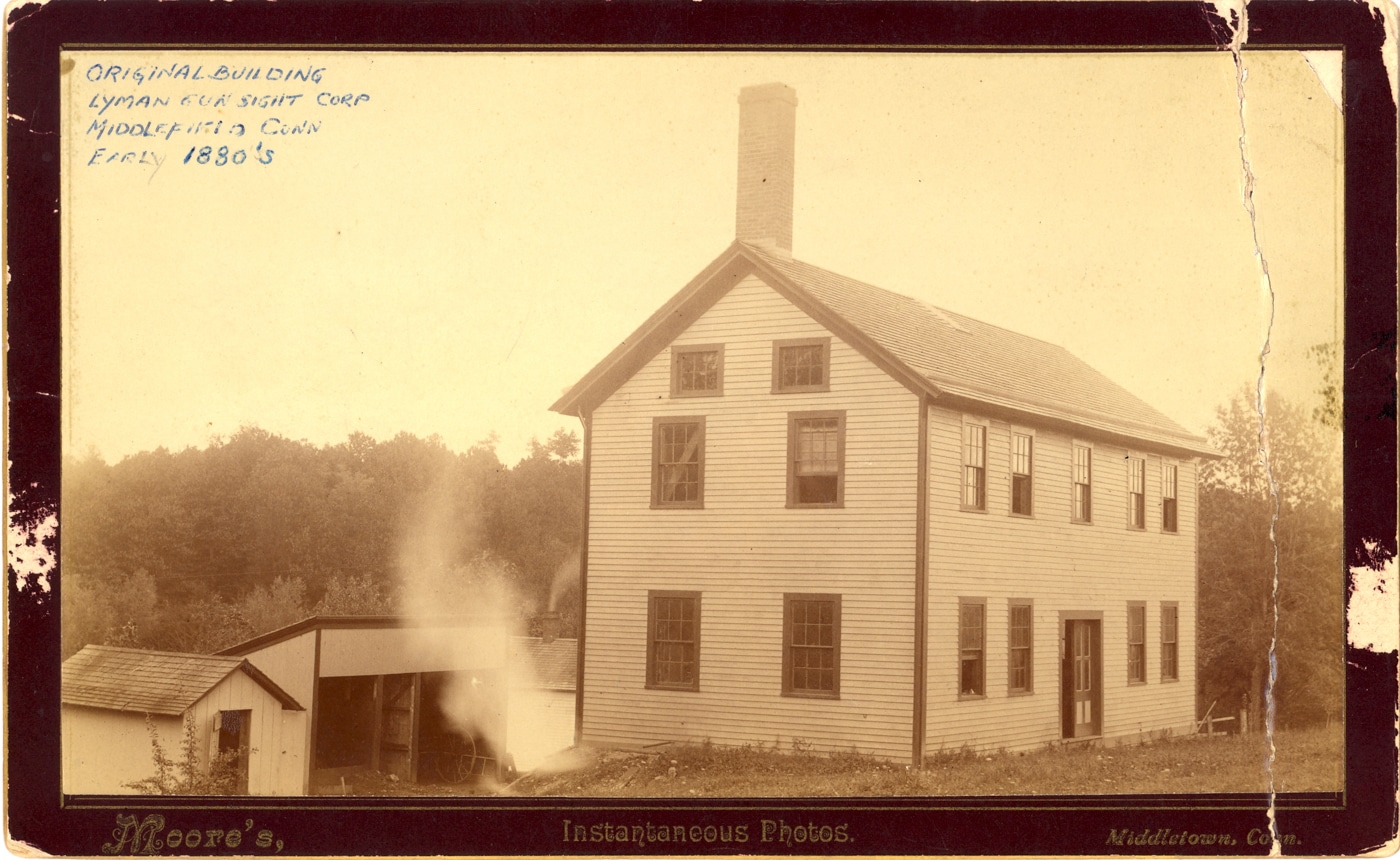
Shown in this vintage photograph is the original Lyman factory in the early 1880s. Image: Lyman Products Corp.
The flagship publication, theLyman Reloading Handbook, is in its 51stEdition.
Both of these innovations are now taken for granted, but were revolutionary at their launch.
In Practice
I have used many Lyman products for close to 30 years.
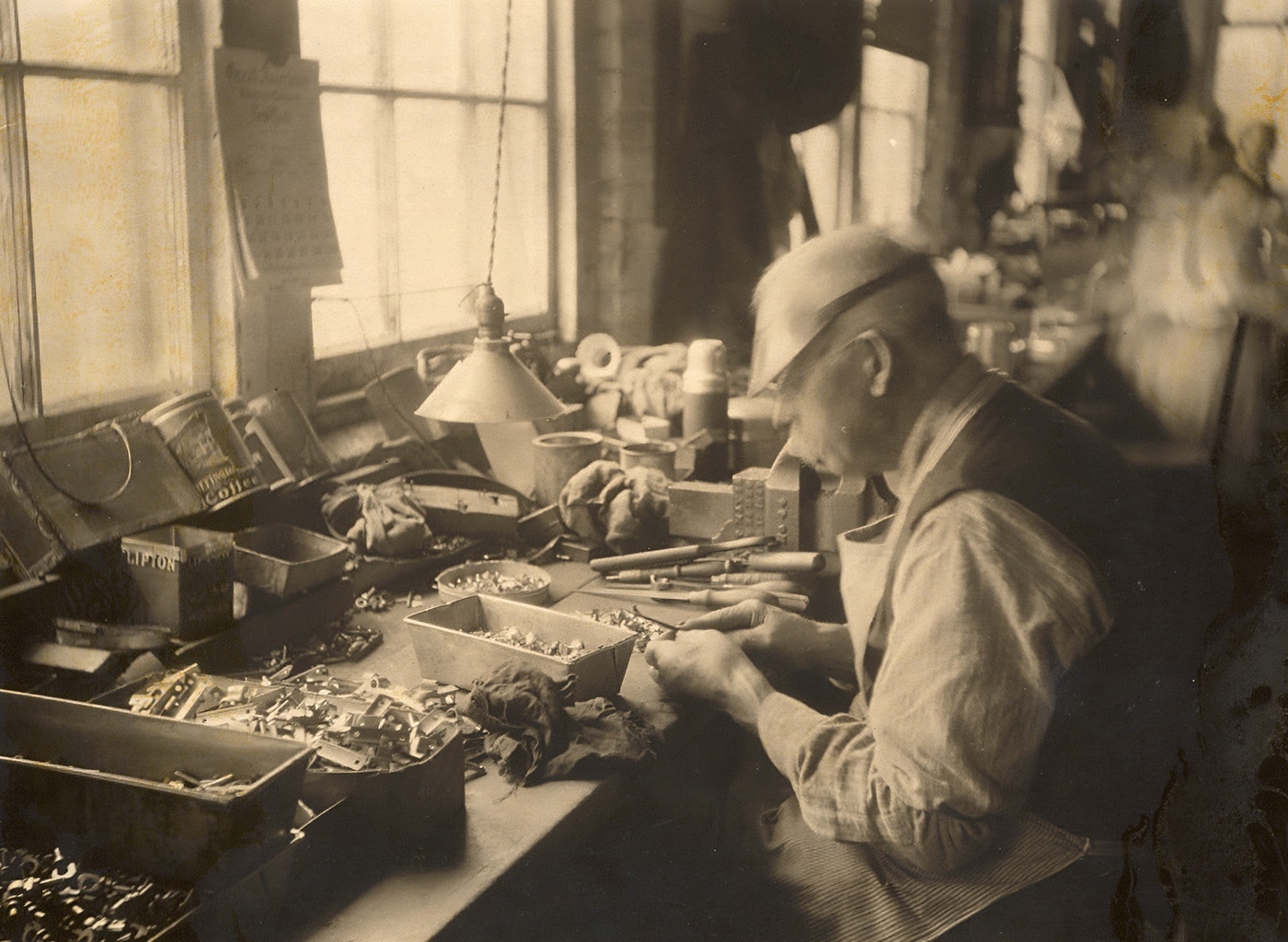
A Lyman craftsman hand-finishes a product during the late 1800s. Image: Lyman Products Corp.
The high quality and affordability of these American made products has always impressed me.
More than 20 years ago, Lyman purchased A-Zoom Snap Caps and brought the manufacturing in house.
Once a part is secured into one of these modern machines, several operations can be completed.
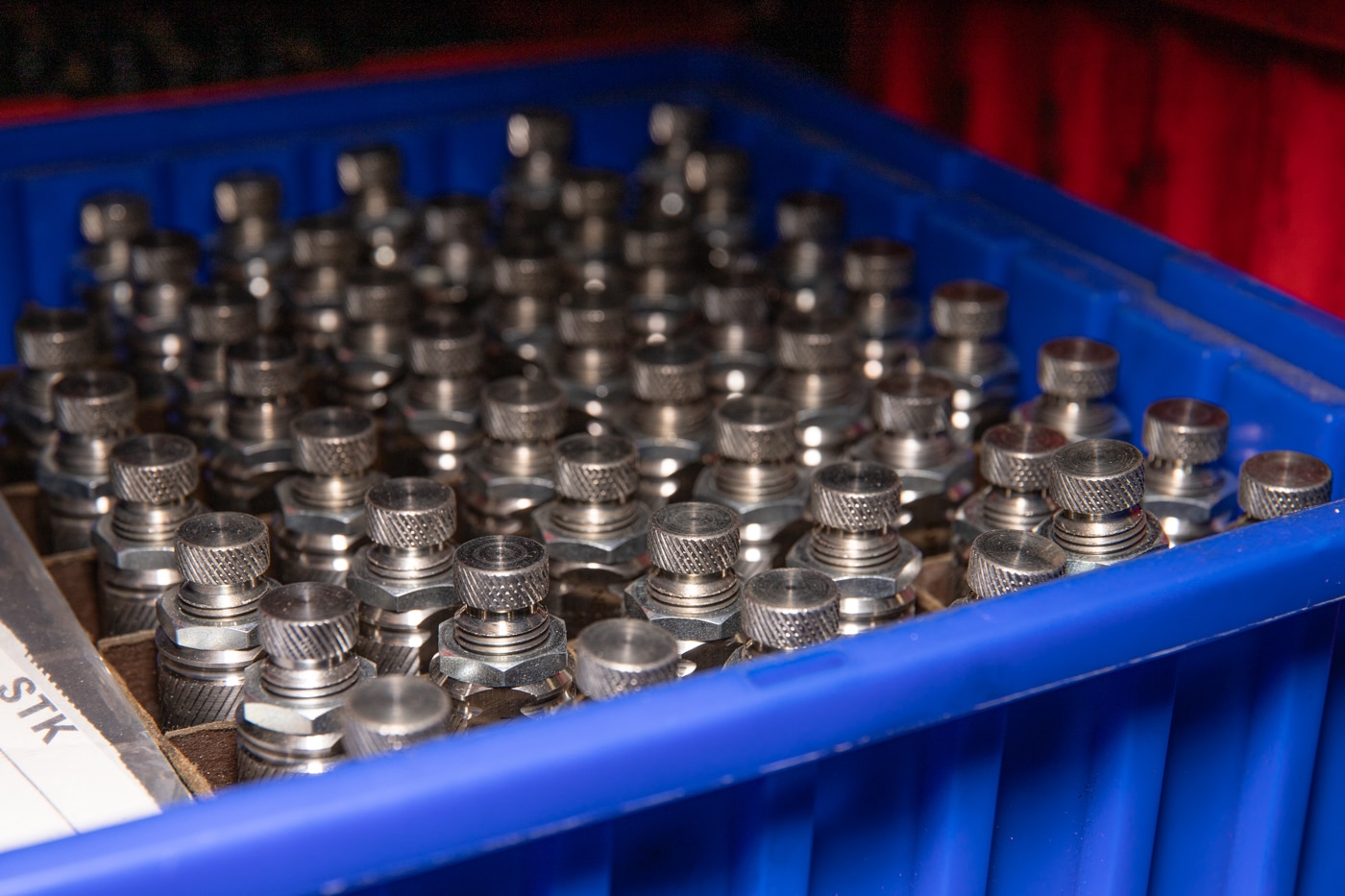
Completed reloading dies, awaiting packaging in the Lyman factory. Their bar code system lets factory workers know where everything is. Image:Harrison Rice
This saves time and costs.
The castings, which will become press frames, are powder coated before machining.
The first piece of each production run is checked and then every fifth piece is checked.
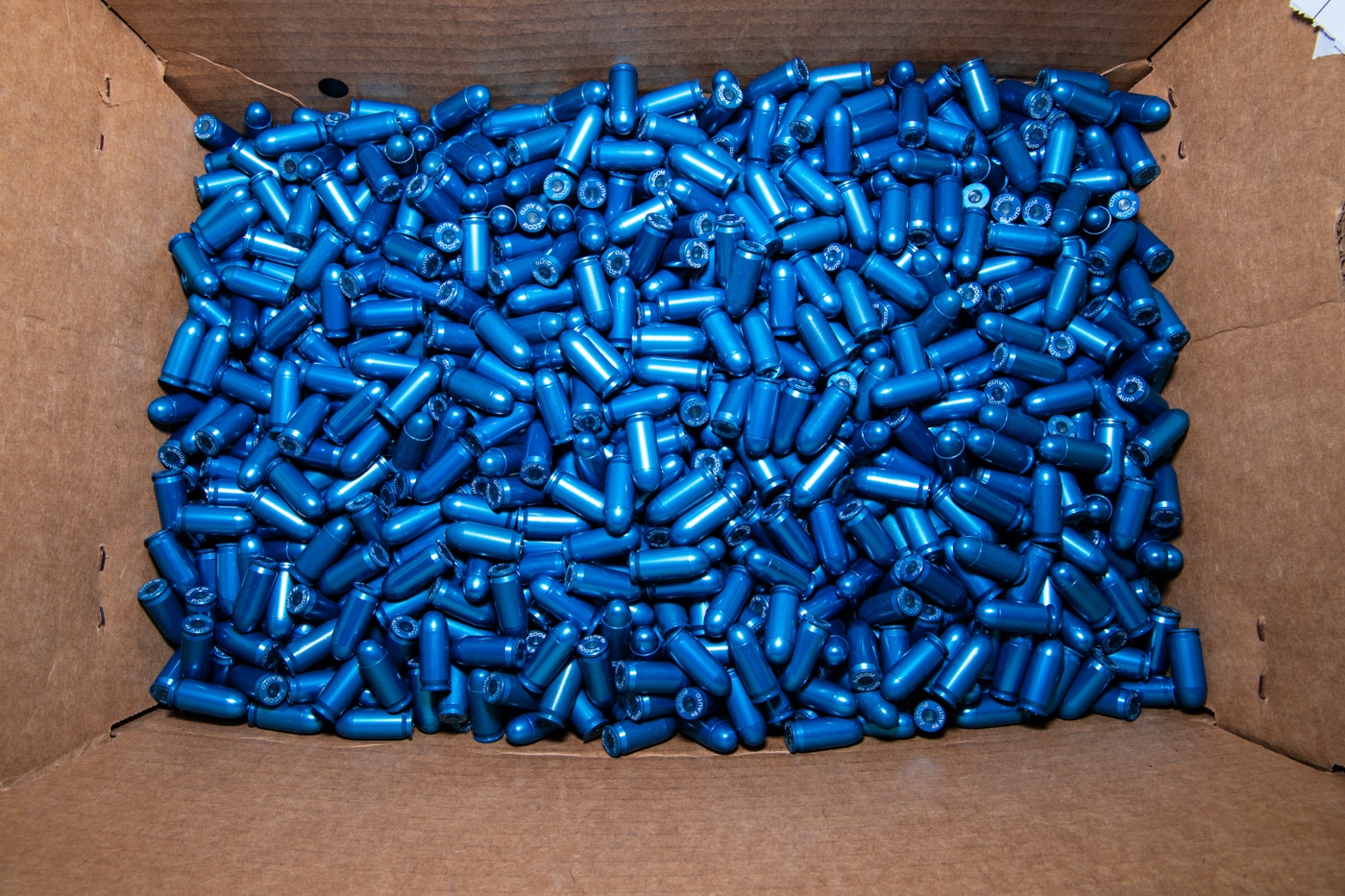
Completed A-Zoom Snap Caps sized for the .45 ACP cartridge are collected prior to being packaged for sale. Image:Harrison Rice
If anything is out of specification, production is stopped and workers find out why and fix the problem.
The workers running the CMM take their work and quality control very seriously.
The Middletown factory produces 70% of those products.
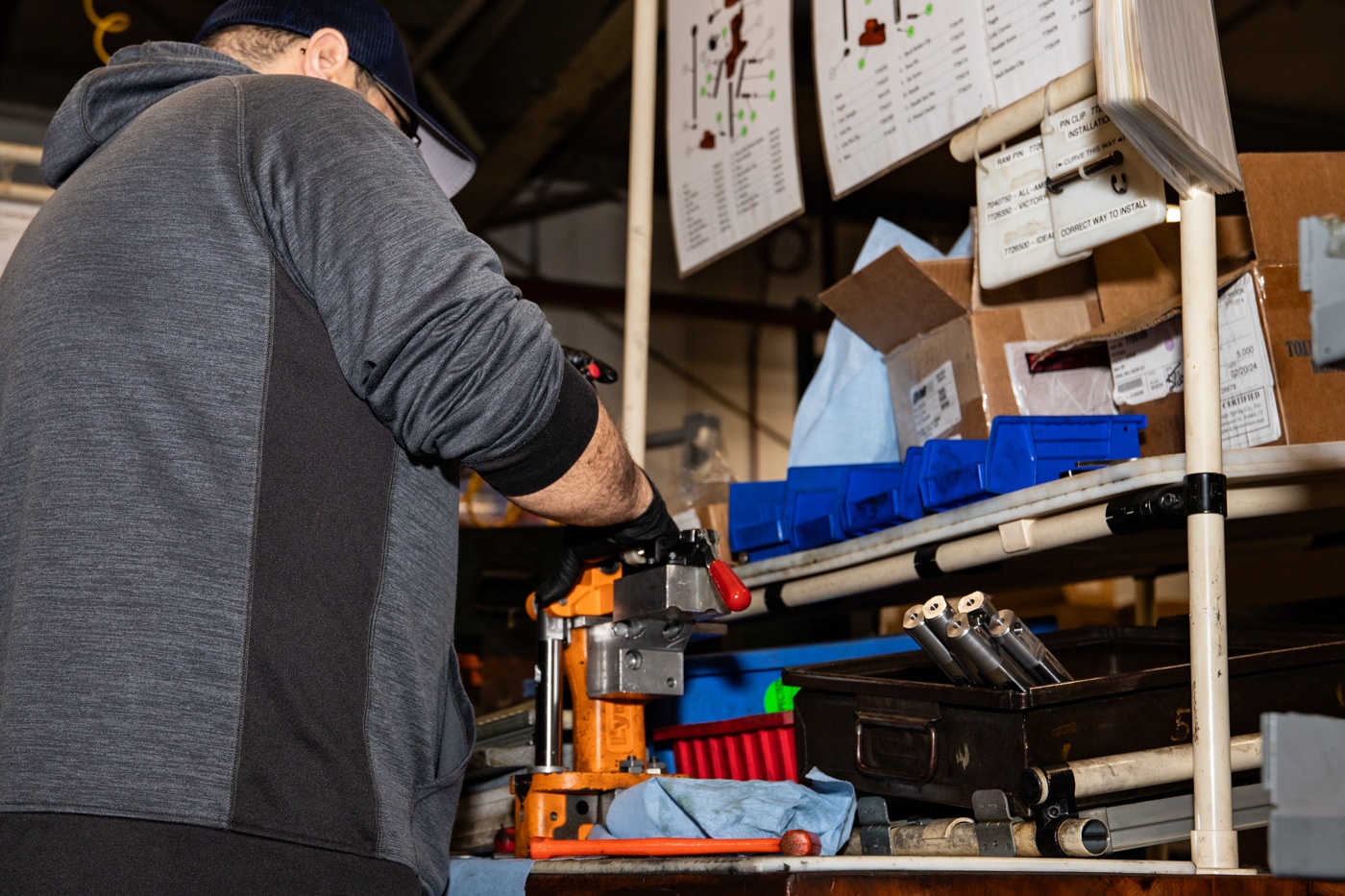
A Lyman reloading press is assembled in the factory prior to packaging and sale. Image:Harrison Rice
The rest come from sub-contractors or other Lyman facilities.
Pachmayr grips, recoil pads and speedloaders are made in an Arizona factory.
The computerized system knows where everything is at all times.
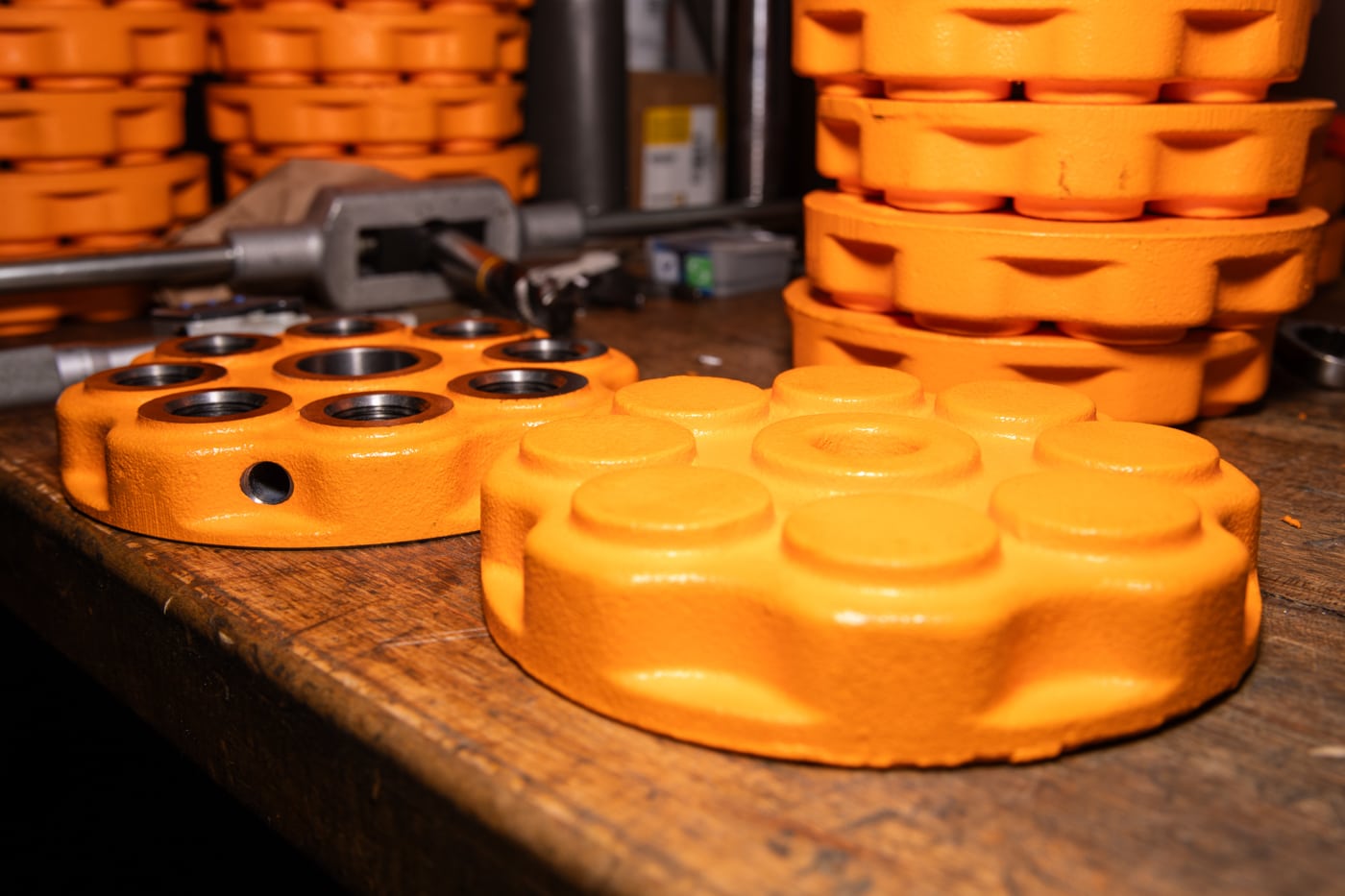
Turrets for the Brass-Smith All-American 8 reloading press before and after machining. Image:Harrison Rice
This makes factory floor workers more efficient.
In 2019, Lyman purchased Mark 7 reloading a company that manufactures automated reloading machines.
Mark 7 machines bring progressive reloading to full automation.
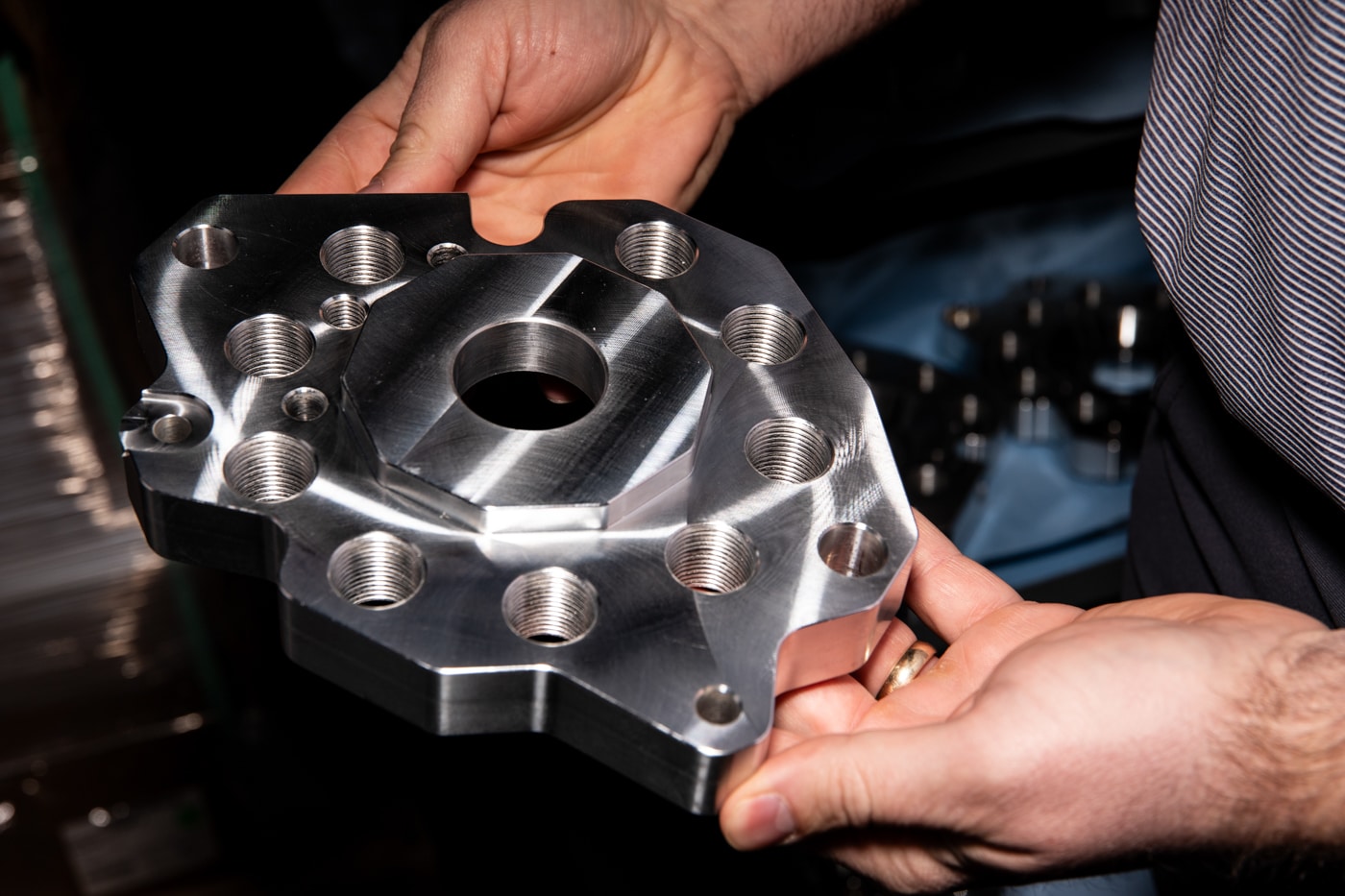
A toolhead for a Mark 7 reloading machine. This part is manufactured in Middletown, Conn. and shipped to Fort Myers, Fl. for assembly. Image:Harrison Rice
Mark 7 machines have ten stations and an autodrive.
The machines are designed to run on their own to make ammunition in large quantities.
Bullet seating and crimping are also separate functions.
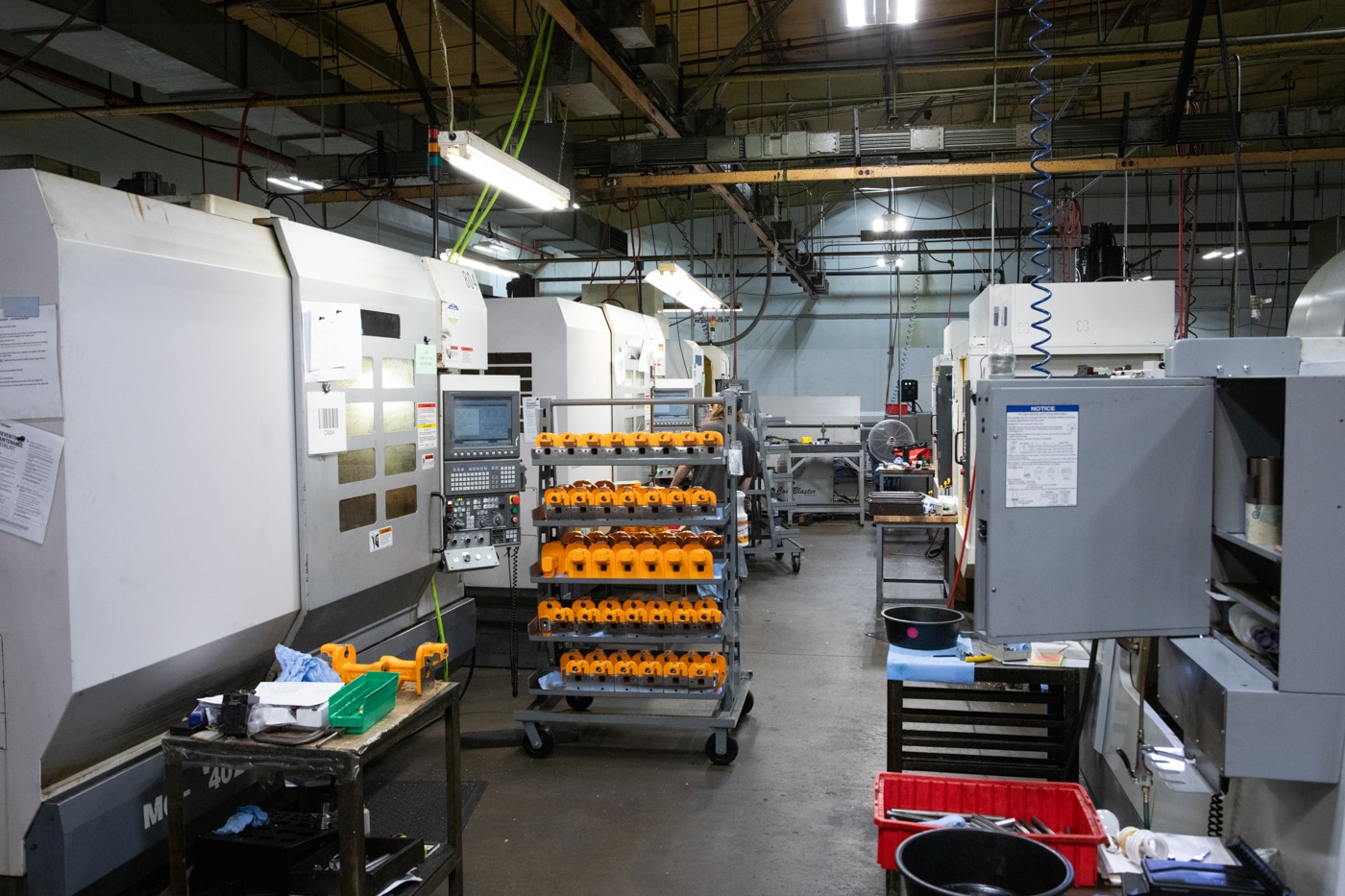
Rows of automated machinery with some product waiting to be worked on in the Lyman factory. Image:Harrison Rice
According to Lyman, station separation produces superior results.
Many commercial reloaders rely on Mark 7 machines.
He told me: my journey with Lyman reloading products has been nothing short of exceptional.

Pro Dies are made in Connecticut for 17 popular rifle and pistol calibers.
These dies have a 7/8 X 14 thread pitch and can be used with any press.
Others, like the Premium Carbide 4 Die Sets, are made for modern, popular calibers.
A board showing the many employees who have several decades of service to the company underscores this.
Todays Lyman is a modern manufacturer of all things firearms.
Go to forum thread




